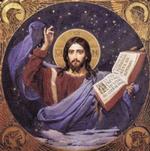Catholic Dictionary
Find accurate definitions of over 5,000 Catholic terms and phrases (including abbreviations). Based on Fr. John Hardon's Modern Catholic Dictionary, © Eternal Life. Used with permission.
Random Term from the Dictionary:
ETHICS
The science of human conduct as known by natural reason. It is a normative science because it determines the principles of right and wrong in human behavior. It is also a practical science because it does not merely speculate about moral good and evil but also decides what is right or wrong in specific human actions.
Also called moral philosophy, the purpose of ethics is to study this fact of human experience, that people distinguish right from wrong and have an instinctive sense of what they should do. The subject matter of ethics, therefore, is human conduct; its point of view is that of rightness and wrongness.
Although related to other human and social sciences, ethics is different from them by its unique point of view, namely the word ought. It is also different from moral theology by restricting itself to native reason as opposed to revealed religion.
Ethics is a science, not in the sense of the experimental sciences, but as a philosophical science that assumes certain postulates from philosophy and from them derives practical conclusions. It borrows three main premises from natural philosophy: the existence of a personal God, the freedom of the human will, and the immortality of the soul. Implicit in these premises is the idea that a good moral action is done freely by humans, in conformity with the mind and will of God. It is good precisely because it leads a human to the goal or destiny set by God in a future immortality. Ethics comes from the Greek ethos, which denotes a fixed custom and is often used to mean a person's character.






